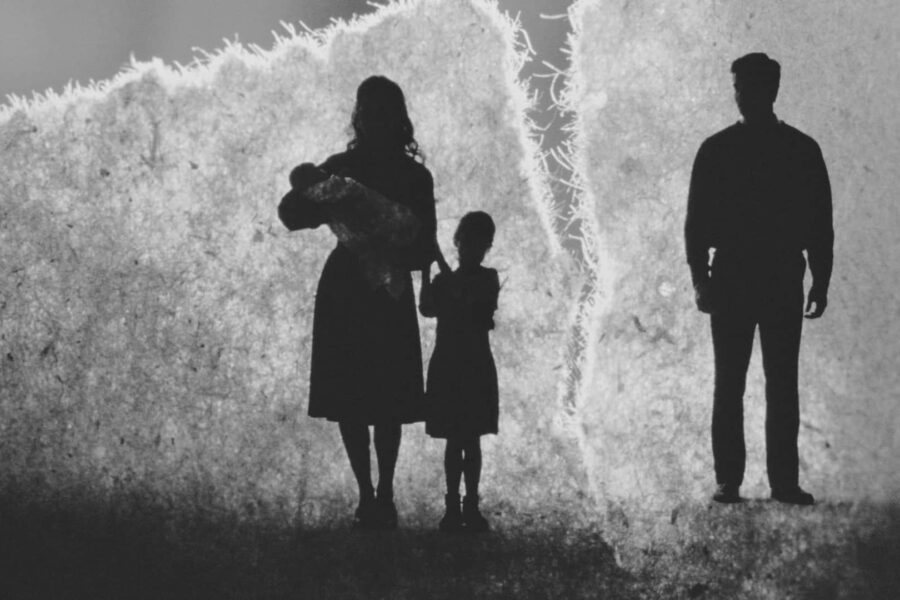
When parents think of separation or divorce in Canada, they both wish to have custody of their children. It is a case where you have to decide who would get custody of a child so that a child will be happy and grow up safely. When parents get divorced, it deeply affects their children. So, it is essential to decide where their children will live and which parent will have custody. If you are going through a separation, and divorce or just want to understand how it all works, this article will provide you a complete information about child custody in Canada, as we are experienced in dealing with these cases.
What is Child Custody in Canada?
It is helpful to know that in Canada, the word “custody” isn’t really used in legal papers anymore. Since the Divorce Act was updated in 2021, and in most provinces too, the law now uses different terms to describe parenting roles. These are:
- Decision-making responsibility: Decision-making responsibility means the legal right to make important choices about a child’s life, like education, health care, and religion. In Canada, it can be shared by both parents or granted to just one.
- Parenting time: Parenting time is the schedule that determines when each parent spends time with their child after a separation or divorce.
These changes help parents avoid fights about custody. The focus is now on what’s best for the child.
Types of Custody or Parenting Arrangements
In Canadian law, there are several types of arrangements:
-
Sole Decision-Making Responsibility
It means one parent decides important things like school and health. The other parent can spend time with the child as much as possible but cannot make big decisions.
-
Joint Decision-Making Responsibility
Both parents have the right to make important decisions for the child, and they need to work together and agree on things like school, health care, and daily routines.
-
Split Parenting Time
If there are multiple children, they may live primarily with different parents. This is less common and only considered if it benefits the children.
-
The Shared Parenting Time
At least 40% of the time, the child remains with each parent. But even with shared time, one parent might still make most of the important decisions.
Who decides Child Custody?
By Agreement Between Parents
If both parents can reach an agreement, they can write down a plan describing how they will provide for the child. This is known as a parenting or separation agreement. If they can manage, then they can create it on their own, with the help of lawyers, or by using a mediator. If the plan is fair and good for the child, the court will usually approve it and make it official.
By the Court
If the parents cannot agree on who should take care of the child or how to share time, the court will have to decide. A family judge will listen to both sides and look at the proof they give. Each parent can have a lawyer to speak for them and show that they are involved in the child’s life and can take good care of them. The court will then issue a parenting order (for non-married parents or those not divorcing) or a custody order under the Divorce Act (for divorcing spouses).
The Child’s Best Interests Rule
The courts of Canada always put the child’s best interests first. This means:
- The child’s emotional and physical well-being
- The child’s relationship with each parent
- Each parent’s ability and willingness to care for the child
- History of family violence (if any)
- The child’s own views (depending on age and maturity)
If one parent has demonstrated greater stability or involvement in the child’s life, the court may grant that parent sole decision-making responsibility.
Factors Considered by the Court May Include:
- The child’s physical, emotional, and psychological well-being
- The child’s relationship with each parent
- Each parent’s ability to meet the child’s needs
- History of caregiving roles and responsibilities
- Willingness of each parent to cooperate and communicate
- Any history of family violence, abuse, or neglect
- The child’s own views and preferences (if age-appropriate)
What If Parents Disagree?
If parents share responsibility but can’t agree on major issues, they can:
- Work with a mediator or family law professional
- Return to family court for a judge to decide
- Request a parenting coordinator (if available in the province)
The court may also consider modifying the parenting order if one parent is consistently uncooperative.
Can the Child Choose?
Children can share what they want, especially if they are 12 or older, but they cannot make the final decision, as this is not the child’s decision. The judge will listen to them and understand why the child wants this, but their choice is not the only thing that matters.
For example, if a teenager wants to live with one parent, but that parent is not stable or has a history of mistreating, the judge may choose the other parent. The court only wants to keep the child secure and in a good environment.
Conclusion
Child custody in Canada is all about a child’s future. Whether parents decide together or the court makes any decision, the goal is to ensure the safety of a child, stability, and well-being. If you are going through a separation then getting professional legal advice can help you make the best decisions for your child’s future. Contact CityLaw for a free consultation.






